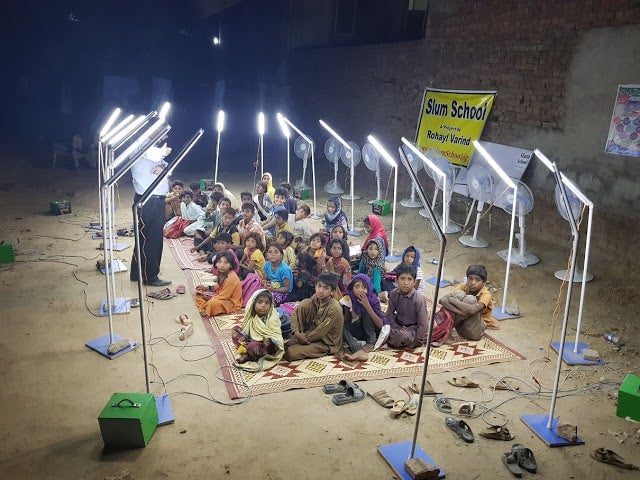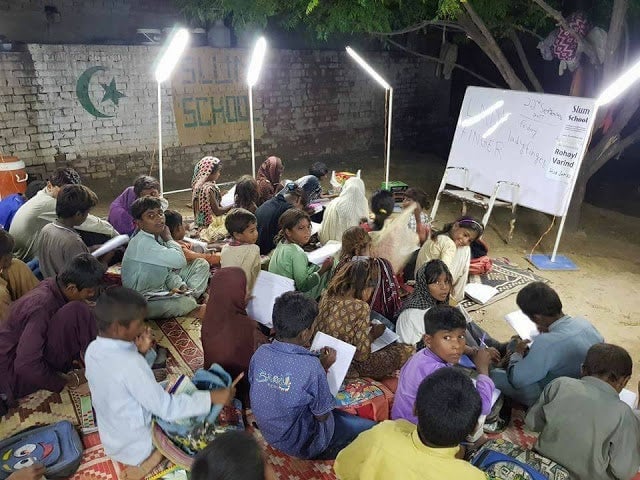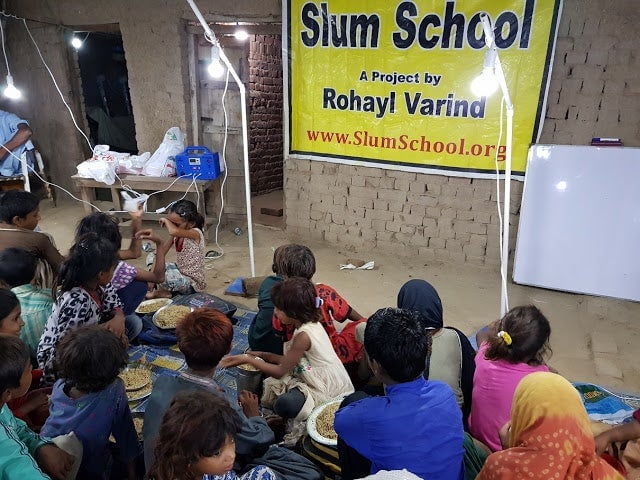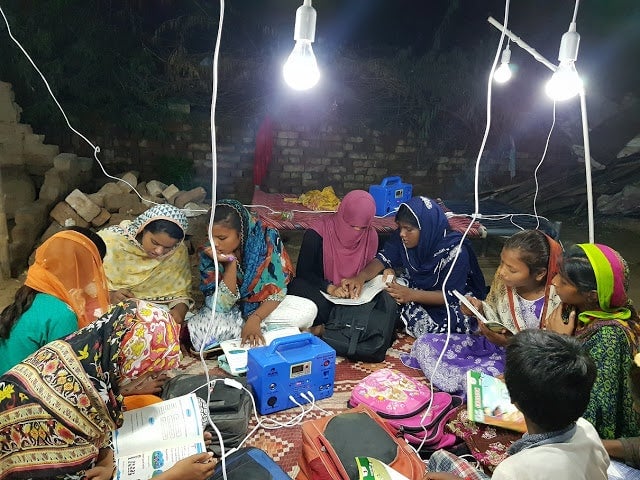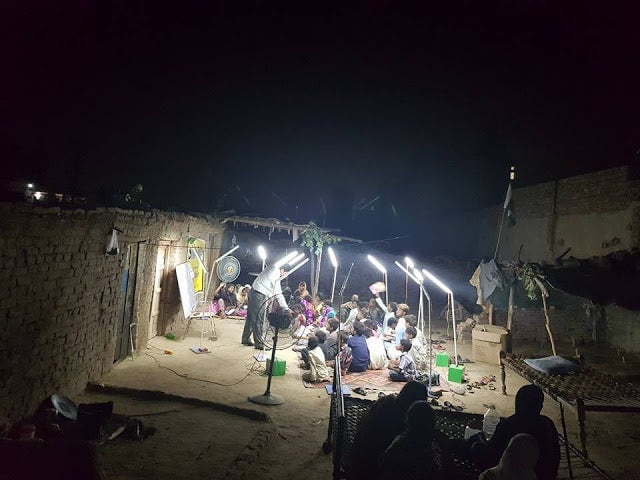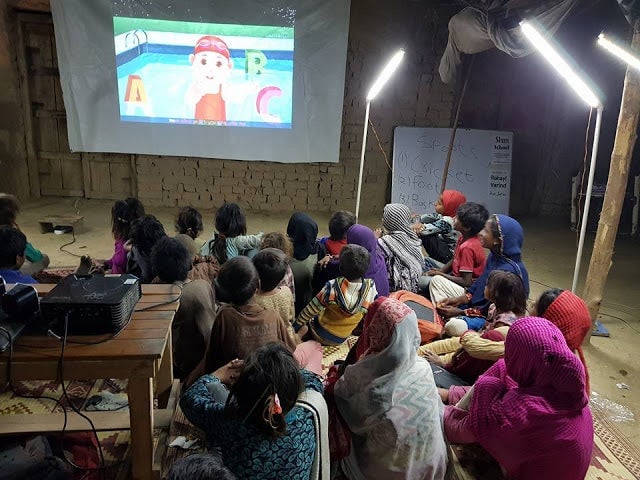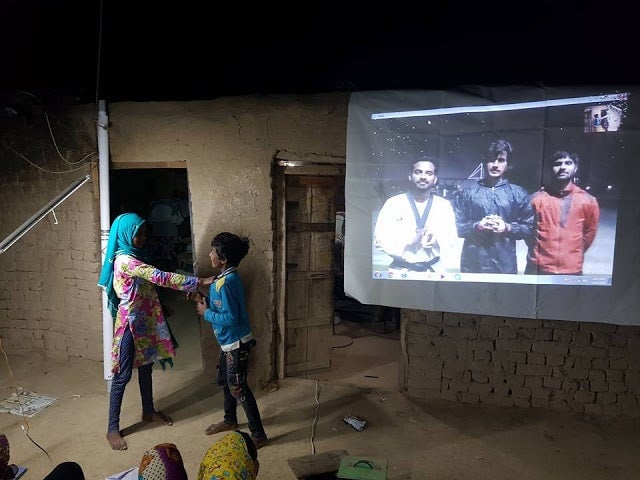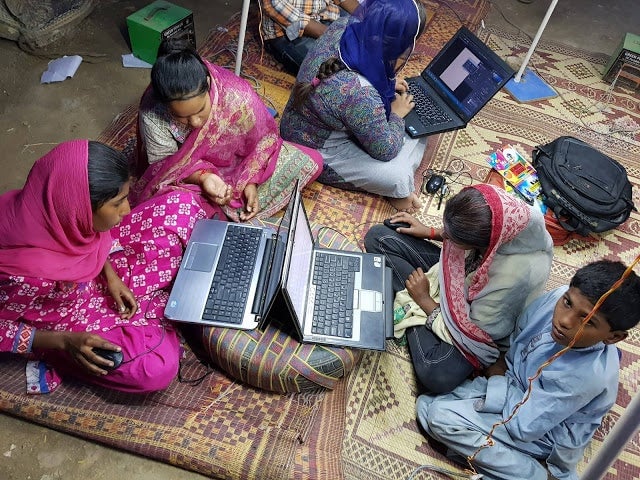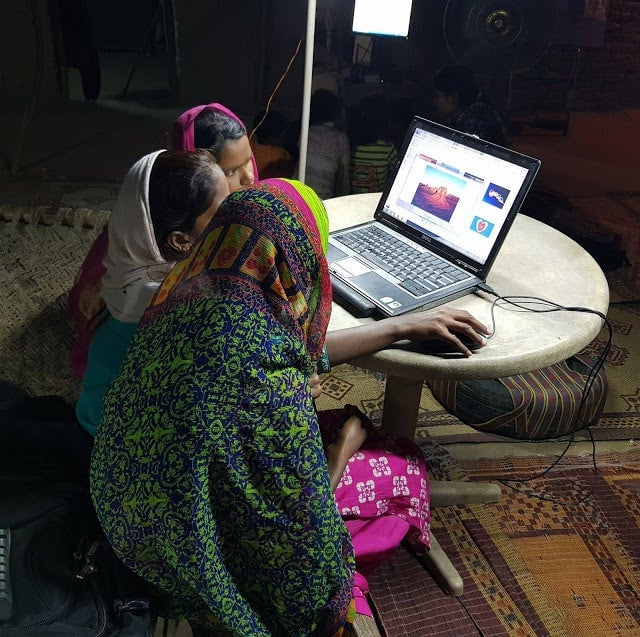At Pakistan’s “Slum School,” child labourers can get a formal education at night
Nearly 23 million children are out of school in Pakistan. Rohayl Varind wanted to bring them back.
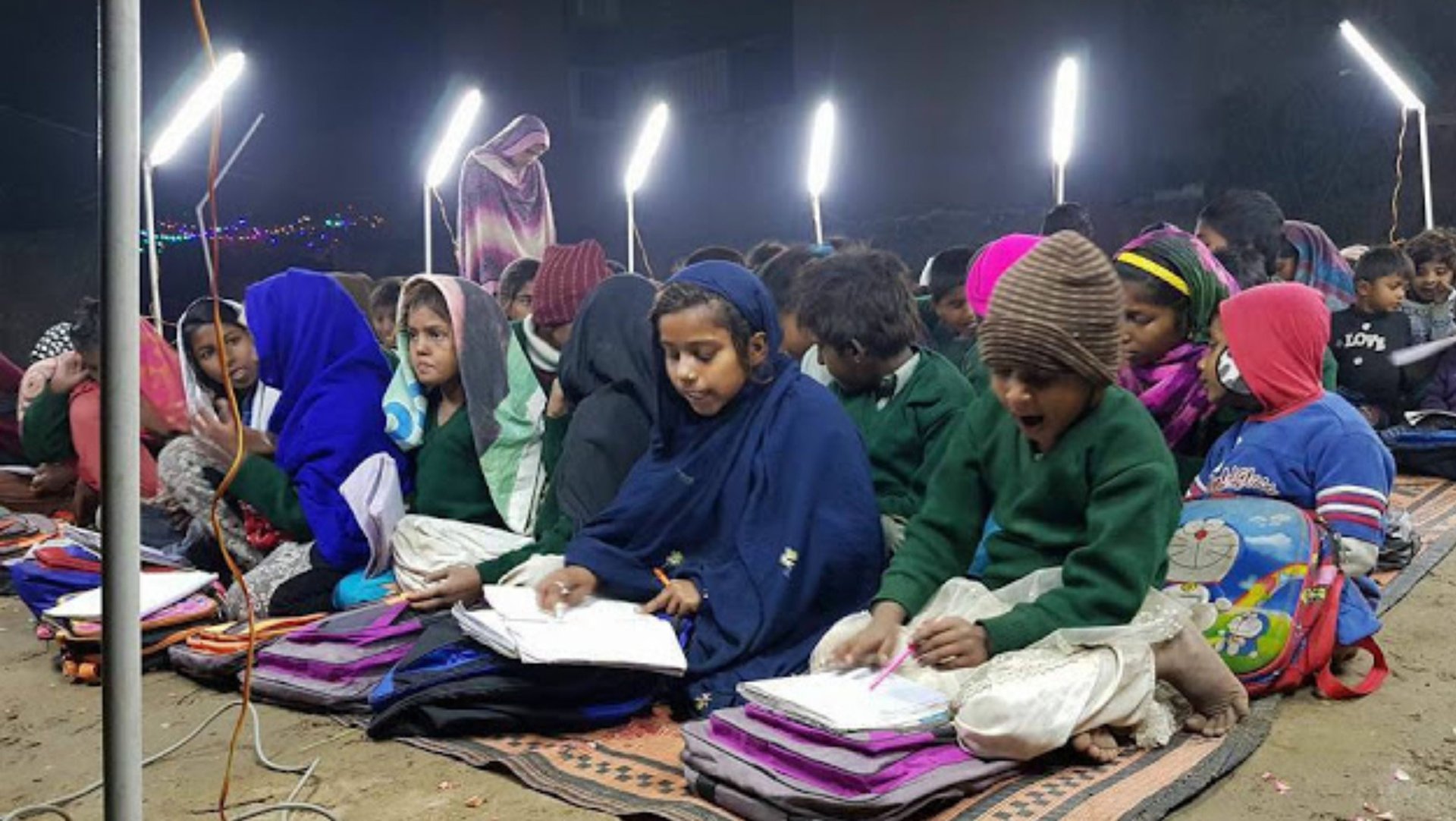

Nearly 23 million children are out of school in Pakistan. Rohayl Varind wanted to bring them back.
So, in December 2016, the 23-year old social activist and educationist set up two branches of Slum School in Faisalabad, around 323 kilometres south of capital Islamabad, offering night classes to children.
The school does not accept cash donations. Instead, it seeks food, stationary, and laptops.
One other thing on Varind’s donations list, interestingly, is solar power-related equipment. Since its inception, the school has relied on solar energy to power its lights, fans, and IT equipment. ”Where my Slum School is located, there is no electricity so I considered solar energy the best alternative,” Varind said. “It’s free and easy to install and use.”
A typical school evening runs from 7pm to 9pm, with Varind teaching the kids English, Urdu, math, and science. Each week, he splits his time equally between the two branches of the school, which have a total of over 100 students. Sometimes, volunteers—his friends and other activists in Pakistan—come in to teach computers, Taekwondo, graphic design, and other subjects.
Many of the children Varind teaches are child labourers. “They start working as house helps or maids. Many boys start working at paan (betel leaf) shops or tea stalls, cafés or restaurants as waiters or cleaners,” said Varind. “One thing is common in majority of child labourers is that they work the whole day and get free at night.”
